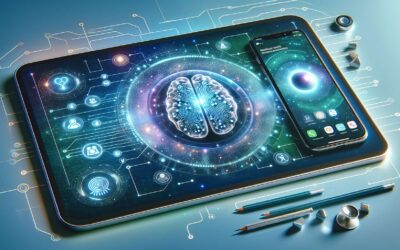Introduction
Artificial Intelligence (AI) has been making significant strides in various industries, and healthcare is no exception. In recent years, AI has emerged as a powerful tool in healthcare diagnostics, revolutionizing the way diseases are detected and diagnosed. This article explores some of the recent breakthroughs in AI-powered healthcare diagnostics and their potential impact on patient care.
Early Detection of Diseases
One of the key areas where AI has shown immense promise is in the early detection of diseases. Machine learning algorithms can analyze vast amounts of patient data, including medical records, lab results, and imaging scans, to identify patterns and indicators that may go unnoticed by human physicians. This enables healthcare professionals to detect diseases at their earliest stages when treatment options are often more effective.
Improved Accuracy in Diagnoses
AI algorithms have demonstrated remarkable accuracy in diagnosing various medical conditions. For instance, in a study published in Nature Medicine, researchers developed an AI system that outperformed human dermatologists in diagnosing skin cancer. The system was trained on a large dataset of images and achieved a diagnostic accuracy of 95%, compared to 86.6% for human dermatologists. This highlights the potential of AI to enhance diagnostic accuracy and reduce misdiagnosis rates.
Enhanced Medical Imaging Analysis
Medical imaging plays a crucial role in diagnosing and monitoring diseases. AI algorithms can analyze medical images, such as X-rays, CT scans, and MRIs, to identify abnormalities and assist radiologists in their interpretations. For example, AI-powered algorithms can detect early signs of lung cancer in chest X-rays, helping radiologists prioritize cases and potentially improving patient outcomes.
Personalized Treatment Plans
AI can also contribute to the development of personalized treatment plans for patients. By analyzing large datasets of patient information, including genetic data, medical history, and treatment outcomes, AI algorithms can identify patterns and correlations that can guide healthcare professionals in tailoring treatment plans to individual patients. This can lead to more effective treatments and better patient outcomes.
Challenges and Ethical Considerations
While the potential of AI in healthcare diagnostics is immense, there are also challenges and ethical considerations that need to be addressed. Data privacy and security, algorithm bias, and the need for human oversight are some of the key concerns. It is crucial to ensure that AI systems are transparent, accountable, and used in conjunction with human expertise to make informed decisions.
Conclusion
Artificial Intelligence is transforming healthcare diagnostics by enabling early disease detection, improving diagnostic accuracy, enhancing medical imaging analysis, and facilitating personalized treatment plans. These recent breakthroughs have the potential to revolutionize patient care, leading to better outcomes and improved quality of life. However, it is essential to address the challenges and ethical considerations associated with AI to ensure its responsible and effective implementation in healthcare.








